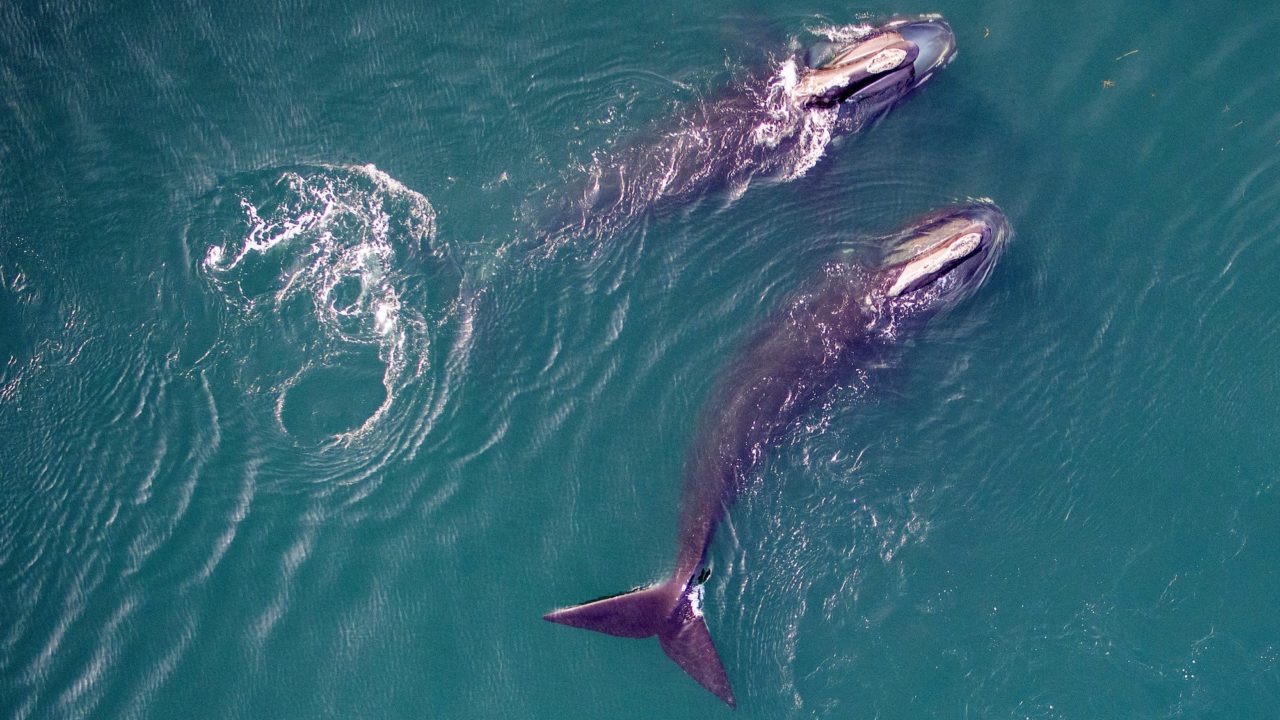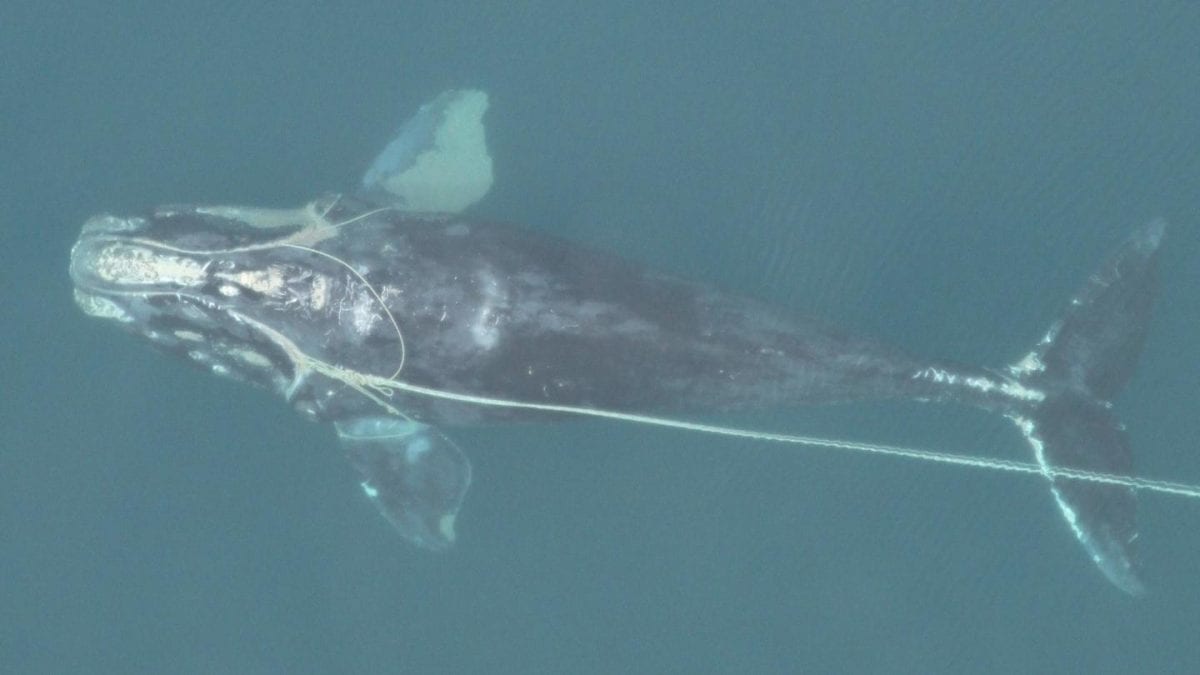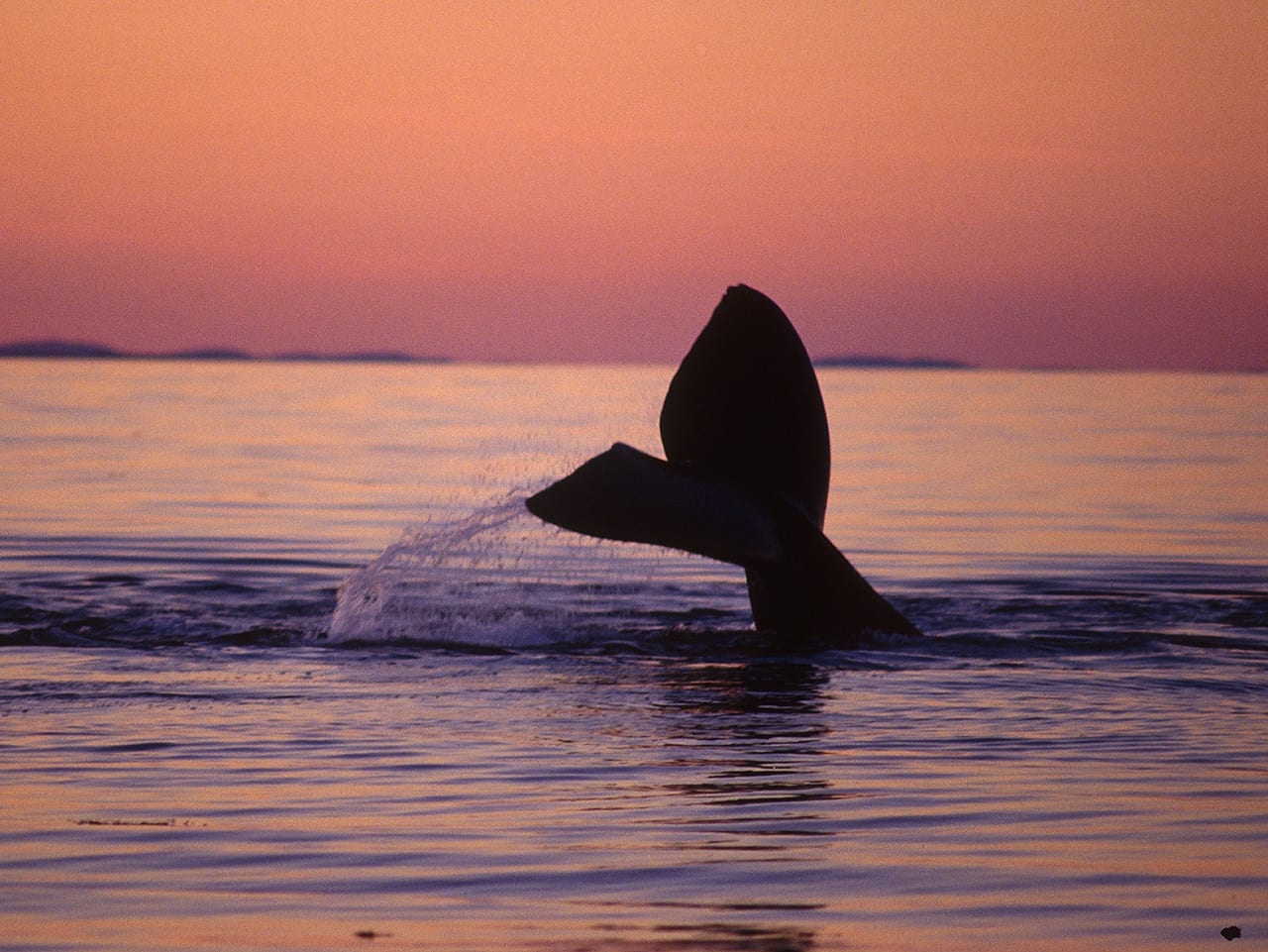Recognizing Massachusetts Right Whale Day
April 24 marks the first-ever Right Whale Day in Massachusetts. Enacted by the state legislature in early 2023, the day was first proposed by Pembroke resident Matt Delaney, who witnessed a right whales breaching from his local beach and wanted to do something to bring more visibility to the critically-endangered species. With the help of his state representative, Josh Cutler, Right Whale Day was established to raise awareness and encourage opportunities for education about these marine mammals, which feed each winter and early spring in the waters off Massachusetts.
WHOI biologist and veterinarian Michael Moore recently met with Delaney and shared his thoughts about the significance of this recognition for North Atlantic right whales.
Q: Why is it important for Massachusetts to recognize Right Whale Day?
Michael Moore: The plight of the North Atlantic right whale is well documented, including in my book We Are All Whalers. Their small numbers—about 340—and continued downward trends in the general population and reproductive females all point to species extinction in the near future. Anything that can continue to highlight the dire condition of the species is really important, including them having an official day.
Q: Why are right whales continuing to struggle, while other species of whales have been slowly rebounding?
MM: At the end of the harpoon whaling era, there were only a few hundred North Atlantic right whales left. Despite major efforts, there are still only 340 individuals left. They live, feed, and migrate in some of the most urbanized waters—on the continental shelf of the U.S. East Coast. Fishing gear entanglement and ship strikes continue to be the two greatest causes of death for the species. Efforts to substantially increase mitigation efforts for these impacts are critically important.
Q: Is climate change impacting these whales?
MM: Absolutely. The Gulf of Maine is the fastest-warming body of water on the planet, and that is an area that right whales frequent. As the ocean warms, the availability and the location of prey becomes increasingly uncertain, making it difficult to know where the whales will be and where to enact protections. It may also be impacting the amount of food they are consuming and, as a result, their overall health and ability to respond to the full sweep of challenges they face.
Q: What will you be doing on Right Whale Day?
MM: If the weather cooperates, I will be where I have been every spring for the past seven years—out on Cape Cod Bay, documenting right whales as part of a collaborative science team. Every day, we are continuing to fight for the survival of this species.




